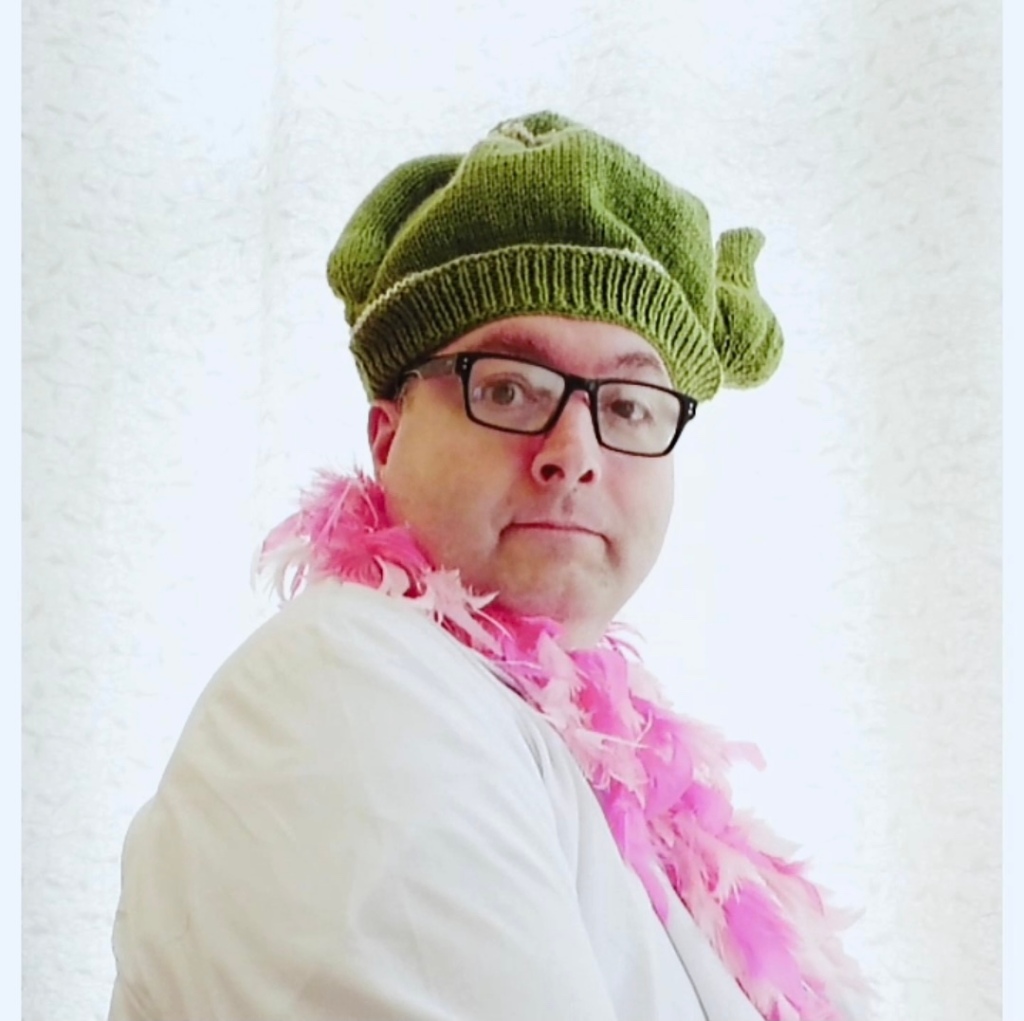
I first heard about Hazel Hammond about thirteen years ago. I had just started in performance poetry and someone mentioned this artist and poet in Bristol, who did a show in which she invited audience members to write and draw fake tattoos on her body, the idea being that she had a date and needed some tattoos fast. I then went to a gig at the Artizan Coffee Shop in Paignton, Hazel was headlining and her poetry was amazing, life affirming and very human. I became absolutely smitten with her as a poet and as a person.
A short while later I started attending various open mics up and down the country and one of these was Acoustic Night in Bristol. Hazel was there, and we became acquainted and I would stay at her house every now and then when I was visiting Bristol. Amazing company and absolutely devoted to art, she would tell me about her various projects such as Marietta’s Wardrobe in which she created a box containing postcards of the contents of the wardrobe of a lady named Marietta, and a poem to accompany each. Marietta’s Wardrobe was a study of memory, loss and grief and brought a curator’s eye to the keeping of memories. And when I put together my show about tea, which I toured throughout the UK, Hazel knitted a hat for me in the shape of a teapot based on the exact dimensions of my head.
Knitting is one of Hazel’s artistic mediums. She told me about one of her performance art exhibitions in which she knitted herself into a cocoon live on stage. The cocoon was then taken to an arboretum. In such a way, Hazel remains one of the most original artists you are every likely to meet, unafraid to blur the boundaries between disciplines, and poetry was at the heart of this.
I’m 2018, Hazel had a stroke. It was an incredibly anxious time for her friends and admirers. Her friend, fellow poet Andi, used social media to update us on her condition, but you couldn’t help but fear the worst.
During her recovery, Hazel turned to art as therapy, from the models and characters she would create with plasticine, to the exotic finger dancing she would develop when listening to music. But during this time, she found that words had left her. Afflicted with the condition aphasia, Hazel could no longer rely on her mind to deliver the words that she so cherished as a poet. In the film which accompanies her exhibition at the Arnolfini Gallery in Bristol, she explained that she shunned the company of poets. I asked her why and she replied, ‘Jealousy’. Poets had their words, and Hazel did not.
The title of the exhibition is ‘Not the Same Poet, But Always an Artist’, which is an apt description of how Hazel’s life has changed in the years following her stroke. The film details her use of art as therapy and the work that she has been doing in the community, using the lessons learned through her own therapy to help other stroke sufferers. In the next room, there are photographs of the knitted hats she has been making which deal with her stroke. One of them is a visual metaphor for the stroke itself, in which one can put one’s fingers as if right down into the centre of someone’s brain. I explained that I found this one a little creepy. She laughed and said, ‘It’s not real, it’s only a sculpture’.
There’s a lot of Hazel’s trademark humour in the exhibition, in spite of the serious message about art which it delivers. Photographs of Hazel wearing her hats are humorous. In one of them, she looks out slyly from behind what she calls her ‘Shouting Hat’, which she wears when she wants to shout because the stroke has left her with a soft voice. Another demonstrates the visual disturbances she suffered, and another is paired with gloves which demonstrate how she uses her fingers and hand gestures to add meaning to her speech.
The exhibition is hugely atmospheric and emotional. The viewer is left truly astounded at how Hazel has overcome such adversity through art, and it is hugely inspirational that she should make the absolute best of such a horrible situation. Hazel has always been an inspiration in any case, and this exhibition cements that feeling.
But what of the poetry? I wanted to ask Hazel if she thought she might write again, but it didn’t seem appropriate to ask. The question is addressed during the film. One of her friends says that perhaps it will come back. Maybe not immediately, and maybe not in the form in which it once existed. But then I thought, this whole exhibition is poetry. It’s the visual manifestation of something which speaks to the viewer emotionally. Hazel has gone beyond mere words and found an even higher form of expression, the likes of which most poets can only dream about.
I heartily recommend this exhibition, and I hope that it tours to other places once the run at the Arnolfini has been completed.







